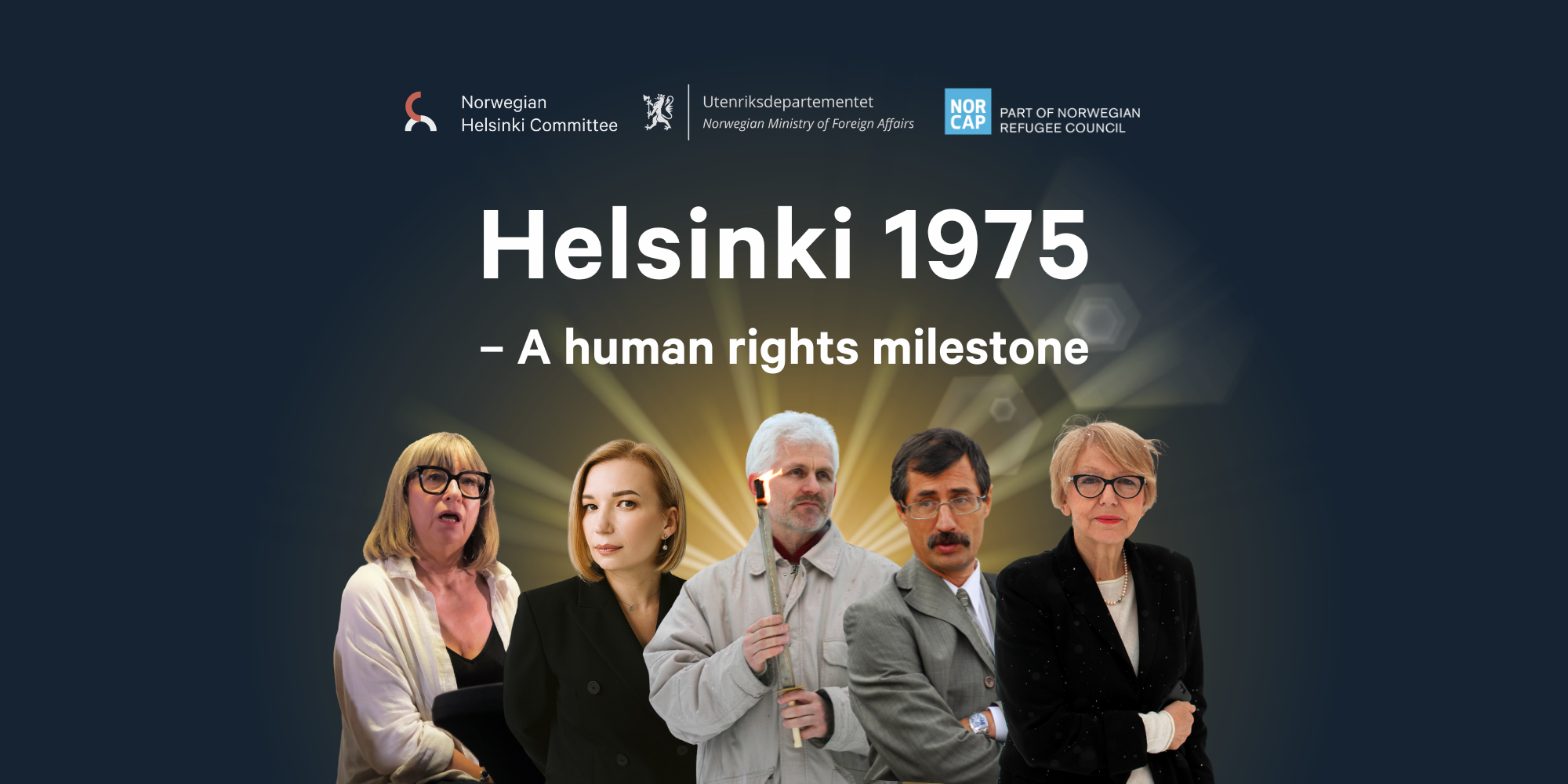The Helsinki Final Act was signed at the Conference on Security and Co-operation in Europe (CSCE) on 1 August 1975. It contained principles of respect for state sovereignty and territorial integrity, echoing the UN Charter. However, it went further, including respect for human rights, human contact across borders, economic and political cooperation, and measures to increase trust and reduce the threat of military confrontation between East and West in a divided world. It was a blueprint for security and cooperation. It was the beginning of the end of the Cold War.
The Helsinki Final Act was not just words on paper. It led to intergovernmental cooperation and the establishment of the Organisation for Security and Cooperation in Europe (OSCE) in 1994. Many civil society organisations and initiatives, such as the Helsinki Committees and Citizens’ Assemblies, started to promote and monitor respect for the Helsinki norms.
In this event, leading academics, human rights defenders, journalists, and politicians will discuss how to revitalise the Helsinki effect. In a series of panels, we scrutinise the role of civil society and the key role of democracy promotion and standards for free and fair elections. We look at the role of the OSCE and the Helsinki Committees in the Western Balkans during and after the conflicts of the 1990s: what can we learn from this today?
How can Helsinki norms help address current European security problems? What should a comprehensive approach to security include today?
Program
13:30 Doors open
14:00 Welcome, Berit Lindeman, SG NHC
14:05 Keynote speech: Olga Aivazovska, Chairwoman, Civil Network OPORA, Ukraine
14:20 The Helsinki Effect: Still Alive? Prof. Daniel C. Thomas, Leiden University
14:35 Panel 1: The Helsinki Effect and Civil Society
- Aage Borchgrevink, moderator, Senior Advisor, NHC
- Prof. Daniel C. Thomas, Leiden University
- Evgeny Zhovtis, Founder, Kazakhstan International Bureau for Human Rights and Rule of Law
- Ekaterina Kouznetsova, Expert, Belarus Helsinki Committee
15:15 Coffee break
15:30 Panel 2: Observing and promoting democratic elections
- Lene Wetteland, moderator, head of documentation, NHC
- Adam Busuleanu, Senior Program Officer, European Platform for Democratic Elections (EPDE)
- Kathrine Raadim, Director of the Climate Action, Peace and Democracy Section, NORCAP
- Roman Udot, Independent Election Expert
16:00 Panel 3: Lessons on peace from the Western Balkans
- Mina Skouen, moderator, Senior Advisor, NHC
- Sonja Biserko, President, The Helsinki Committee in Serbia
- Ivan Novosel, Director of Programs, Human Rights House Zagreb
- Ambassador Jan Braathu, OSCE Representative on Freedom of the Media
16:30 Panel 4: The OSCE and the European Security Context
- Gunnar Ekeløve Slydal, moderator, Deputy Secretary General, NHC
- Olga Aivazovska, Chairwoman, Civil Network OPORA, Ukraine
- Ewa Kulik-Bielińska, Member of the Board, Stefan Batory Foundation
- Ellen Svendsen, Norway’s ambassador to the OSCE
17:00 Coffee, tea, wraps
17:15 ‘The Helsinki Effect’: Film by Arthur Franck, Finland, Germany & Norway, 2025. Intro by co-producer Thorvald Nilsen
18:45 The end
